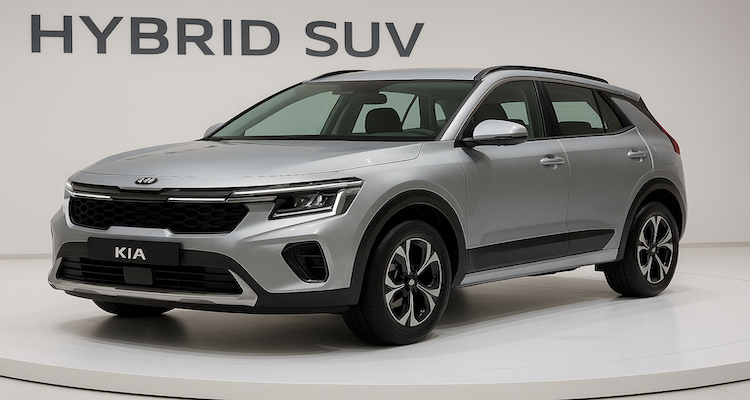Kia’s Hybrid SUVs Could Spark India’s Green Car Revolution

Kia is set to launch hybrid SUVs in India, marking a major shift in the country’s car market as automakers balance stricter emission norms with consumer demand.
A Turning Point for Indian Automobiles
India’s car market may be on the verge of a transformation. With Kia preparing to roll out its first hybrid SUVs, the South Korean automaker could set the stage for hybrids to become a mainstream alternative in the world’s third-largest auto market. The move comes as policymakers push for cleaner mobility and global carmakers recalibrate strategies amid uneven adoption of electric vehicles.
Context: Why Hybrids Now?
For years, India’s green mobility debate has been dominated by electric vehicles (EVs). While domestic players like Tata Motors and Mahindra & Mahindra doubled down on EV investments, hybrids remained an overlooked option, mostly offered at premium price points by Toyota and Maruti Suzuki.
But the landscape is shifting. A newly drafted emissions policy signals a more balanced, multi-fuel approach, encouraging hybrids as part of India’s clean energy roadmap. This policy pivot has made hybrids an attractive choice for carmakers looking to comply with stricter emission rules while catering to cost-conscious buyers.
Kia’s Hybrid Plan: Two SUVs on the Horizon
According to industry insiders, Kia will introduce at least two hybrid SUVs in India.
-
First Launch: A compact hybrid SUV, under four meters in length, expected within the next 18 months.
-
Second Launch: A larger hybrid SUV, details of which are still being finalized.
Although Kia has yet to make an official announcement, sources suggest these models are designed to compete in segments where hybrid options are largely absent. If timelines hold, Kia India Pvt. Ltd. will become only the third major carmaker in the country to offer hybrid vehicles—joining Maruti Suzuki (Grand Vitara, Invicto, Victoris) and Toyota (Urban Cruiser Hyryder, Innova HyCross).
Why It Matters: Filling the Hybrid Gap
Currently, hybrids account for just about 2.5% of India’s passenger car market, far below the share of EVs. A key reason is the absence of compact, affordable hybrid models. By entering this segment, Kia could make hybrids more accessible to Indian families who see EVs as impractical due to charging infrastructure challenges and higher upfront costs.
For Kia, the move is strategic. Unlike Tata and Mahindra, the company doesn’t yet have a strong mass-market EV presence in India. Its lineup relies heavily on petrol and diesel models such as the Seltos and Sonet, with the EV6 positioned as a niche import and the Carens Clavis EV as a limited local offering. Introducing hybrids gives Kia a middle path to transition while keeping pace with environmental regulations.
Market Insight: Hybrids vs. EVs in India
The battle for India’s green car future is no longer a simple EV push. Global automakers are recognizing that hybrids—especially compact ones—may hold stronger near-term potential in emerging markets.
-
Affordability: Hybrids offer better fuel efficiency without the steep costs of EVs.
-
Infrastructure: With EV charging networks still limited in India, hybrids provide a practical stopgap.
-
Consumer Preference: Indian buyers continue to favor small SUVs, making compact hybrids a strong market fit.
Industry observers believe that if Kia succeeds, compact hybrids could trigger a ripple effect, encouraging other carmakers to revisit hybrid strategies in India.
Industry Silence, But Growing Anticipation
When asked about the upcoming launches, Kia India declined to comment. However, industry analysts interpret the company’s silence as a signal that the automaker is still fine-tuning its strategy before making a public reveal.
Meanwhile, market watchers note that Kia’s entry could disrupt the competitive landscape, putting pressure on rivals who bet heavily on EVs.
Implications: The Road Ahead for Hybrids
If Kia’s hybrid SUVs gain traction, the impact could be significant:
-
For Consumers: Wider hybrid options could reduce fuel costs and make cleaner cars more affordable.
-
For Industry: Other automakers may be pushed to diversify beyond EVs, reviving interest in hybrid R&D.
-
For Policy: Success of hybrids could align with the government’s multi-fuel mobility roadmap, easing the transition to net-zero emissions.
In essence, India’s car market may be entering a hybrid-first phase before fully embracing electrification.
Kia’s Bet on the Middle Path
Kia’s decision to launch hybrid SUVs in India reflects a broader truth: the transition to green mobility won’t follow a single path. For emerging markets, hybrids could serve as the crucial bridge between fossil-fuel dependence and an all-electric future.
As Indian buyers weigh affordability, practicality, and environmental responsibility, Kia’s upcoming launches may prove to be more than just new car models—they could be the spark that accelerates hybrid adoption across the nation.
(Disclaimer: This article is based on industry sources and publicly available information. Kia has not officially confirmed the hybrid SUV launches, and timelines may be subject to change.)
ALSO READ: India, EFTA Trade Pact to Come Into Force from October 1










